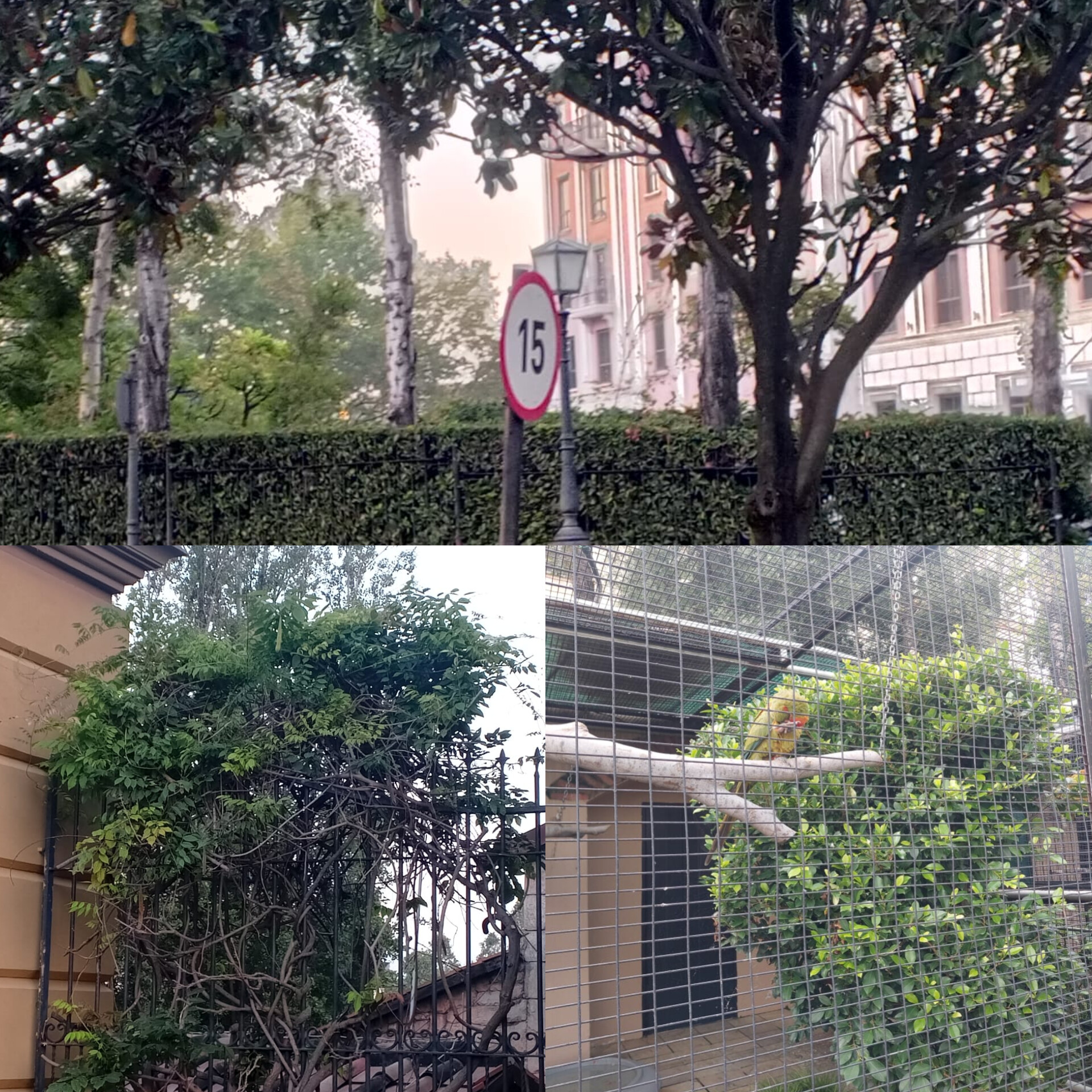Reviving Urban Forests: A path to safer, greener cities. By Michael Oke

Reviving Urban Forests: A path to safer, greener cities

Urban forests are scattered across continents, embedded in residential areas, office districts, and marketplaces. Yet, neglect and underutilisation have turned many into liabilities rather than assets, threatening both environmental sustainability and human well-being. Proper management could unlock their full potential, transforming them into vital resources for urban life.
Additionally, some of these forests are being used for various purposes. This article explores these uses and examines potential opportunities, outlining necessary actions to safeguard urban forests, reduce insecurity, overcome challenges, and make practical recommendations.

Why is the urban forest being neglected when it offers numerous benefits to humanity? Some nations have successfully developed urban forests that contribute to peace and sustainability, while others, particularly in developing countries, continue to face challenges in managing these resources.
This is a pressing issue, and I am deeply concerned about the practical problems affecting our nation. It is believed that regulations governing the use of urban forests exist, particularly for commercial purposes, yet many of these forests remain unprotected, despite being endowed by nature.
It is crucial to look inward and utilise urban forests wisely, as their neglect has become a matter of life and death. High rates of kidnapping, criminal hideouts, and the constant fear experienced by residents living near forest zones highlight the urgent need for government intervention to restore peace.

Due to inadequate management mechanisms, many urban forests have become abandoned and underutilised.
Research-based studies involving scientists and agriculturists are necessary to determine how urban forestry can benefit humanity. The government must take decisive action and explore solutions for effective management.
To encourage both farmers and the general public to plant more trees and explore business opportunities in urban forestry, strategic policies must be implemented.
Even though various studies have been conducted, greater emphasis should be placed on the planting of native tree species to prevent their extinction and maintain ecological balance.
For urban forestry to thrive, the government must develop master plans that outline strategic actions for sustainable forest management.
Despite the continuous expansion of forest zones, the population has not been able to utilise them effectively, posing serious risks to humanity. This calls for the implementation of sound policies to curb environmental degradation and ensure sustainable use.
On the other hand, the Nigerian government has shown a declining interest in managing forest zones and ensuring their security.
Deploying forest guards to protect these zones is a commendable initiative and remains the only viable approach to safeguarding the country’s forests while minimising environmental conflicts.
The benefits of urban forestry
Many forest zones are not receiving the attention they deserve. The demand for tree bark for medicinal purposes, particularly in treating malaria, is depleting these resources, yet their significance in pharmaceuticals cannot be overstated.
Some regions have enacted regulations that prohibit tree-cutting and impose penalties on violators. These laws discourage deforestation for residential and commercial purposes, thereby reducing indiscriminate tree felling.
There is also a need to increase forest productivity to curb deforestation for firewood and commercial timber harvesting.
Carbon sequestration
It is important to recognise that trees play a crucial role in carbon sequestration, which is essential for environmental sustainability.
Additionally, the air and water quality in different forest zones vary. Trees help reduce noise pollution and regulate environmental conditions. By promoting tree planting, urban forests can become lucrative spaces that enhance relaxation and environmental well-being.
Economic benefits
While forests serve as habitats for wildlife, some livestock farmers have historically established farming settlements within them. These farmers should be encouraged to continue sustainable farming practices, as this contributes to economic growth.
Moreover, forest zones can boost the real estate market by providing land for trade, purchases, and development, thereby stimulating economic activity and generating revenue.
Health and social benefits
Urban forests have the potential to become tourism destinations, attracting visitors and investments while enhancing national security.
Social activities within forest zones foster community connections, relaxation, and investment opportunities. Additionally, forest zones can serve as burial grounds, allowing families to conduct funeral rites and visit loved ones.
Forests also contribute to improved health by reducing stress, promoting physical activity, and lowering healthcare costs.
A modern and forward-thinking approach to urban forestry involves finding efficient ways to commercialise forest zones while ensuring environmental sustainability. This requires strategic planning and commitment.
Unfortunately, the government has been unable to effectively curb deforestation, leading to significant challenges. The neglect of urban forests is not just an environmental concern but an emotional one, as communities continue to lose valuable natural resources.
The firewood industry plays a crucial role in the economy, supporting livelihoods through tree harvesting, transportation, and trade. However, the indiscriminate cutting of trees must be addressed to ensure long-term sustainability.
Challenges facing urban forests
Poor management remains a major obstacle to urban forestry, raising concerns about ownership and control. This has led to security threats, funding challenges, and a lack of proactive measures to ensure profitability and environmental sustainability.
The private sector must play a more active role in funding and managing urban forests as part of corporate social responsibility. Incentives such as tax relief could encourage private sector involvement. However, the absence of effective policies hinders broader stakeholder participation in urban forestry development.
To address this, stakeholders must collaborate to establish a structured land management system for urban forests.
Rising firewood demand, coupled with residential and commercial cooking activities, has contributed to increased deforestation, leading to environmental degradation and rising temperatures. Public support for tree planting initiatives is essential in mitigating these effects.
The depletion of forest cover disrupts ecological balance, exacerbates climate change, and weakens environmental laws meant to protect urban forestry. Strengthening enforcement mechanisms is crucial.
Various studies highlight the detrimental impact of deforestation, yet urban forestry remains underutilised. Governments should explore using forests for burial sites and other economic purposes while implementing policies that attract investment.
Urban greening offers environmental, social, health, and economic benefits.
However, investment in urban forestry is hindered by financial constraints, lack of innovative funding models, inadequate project preparation, and misalignment with private sector initiatives.
Nigeria and the global community stand to benefit from structured urban forestry policies that promote private sector involvement. Implementing comprehensive urban forestry policies will boost the economy and ensure sustainable management.
Recognising the economic potential of urban forests, independent farmers and communities must be encouraged to take responsibility for their protection and management.
A well-regulated urban forestry sector will promote prosperity, commerce, and environmental sustainability while curbing illegal activities within forest zones.
The future of urban forestry
Shifts in forest utilisation will significantly impact environmental and economic development.
The negative perception of immigrants clearing forests for settlement and commercial activities underscores the need for a structured urban forestry framework.
As the demand for sustainable urban forestry grows, agricultural land use within forests becomes increasingly untenable.
Governments must act swiftly to prioritise urban forestry as a national development strategy.
Ensuring food security and efficient forest management is essential in stabilising the economy. Forests must be integrated into economic planning to maintain a balanced distribution of resources.
Community-led initiatives, regional collaboration, and innovative financing models are key drivers of sustainable urban forestry.
In conclusion, rapid action is needed to transform urban forests into valuable economic and environmental assets. Strategic policies, private sector investment, and community participation are essential in shaping a sustainable urban forestry future.
Michael Adedotun Oke
Project Facilitator, Talent Upgrade Global Concept
Michael Adedotun Oke Foundation
Plot 232 Kaida Road, Old Kutunku, Gwagwalada, Abuja, Nigeria
maof2020@gmail.com
+234 802 714 2077




